The bushmen are the oldest inhabitants of southern Africa where they have lived for at least 20 000 years. Their home is the vast expanse of the Kalahari Desert. Historically, the bushmen lived in clans and loosely-connected family groups and spend their lives wandering in hunting parties in a continuous search for food.
The bushmen are famous for their rock art, ancient paintings and carvings depicting hunters, animals and half human half animal hybrids. Only expert bushmen artists could exercise their talent and these artists were also the invokers of spirits and the tellers of stories and tales.

God and the afterlife
The bushmen traditionally believe in a greater and a lesser Supreme Being or God.
The greater God first created himself and then the land and the food it produces, the air and water. He is generally a positive power and protects, wards off disease and teaches skills to people. When angered, however, he can send bad fortune.
The lesser god is seen to be bad or evil, a destroyer rather than builder, and a bearer of bad luck and disease. The bushmen believed that bad luck and disease was caused by the spirits of the dead, because they want to bring the living to the same place they are.
Cagn is the name the bushmen gave their god. They attributed human characteristics to him as well as many charms and magical powers.
The bushmen believed in the afterlife and a dead man’s weapons were buried with him. They turned the face of the dead towards the rising sun, as they believed that if he was faced to the west the sun would take longer to rise the next day.
The wind
The bushmen believed that the wind was once a person who, by some mischance, sprouted feathers which enabled him to fly like a bird. He was a hunter and, his bird form enabled him to fly to seek his prey. The bird-man flew into the mountains and found a cave for himself, high up on the cliff face. People can now feel him coming and going in his search for food, his wings swishing. The bird-man has a short temper and flies into rages when provoked. He throws himself down on the ground like a naughty child and kicks and screams. Peace is restored when he recovers and stands up again.

Witchcraft
The bushmen heritage includes a deep belief in witchcraft and charms. They have a dread of violating them and bringing bad luck upon themselves. The hunters believe that if their shadows fall on dying game it will bring disaster upon them. No matter how thirsty a bushman is, he will not dig a hole in the bed of a dried-up stream until he has made an offering to appease the spirit of the stream. The spirit is thought to take the form of an enormous man with either red or green skin and white hair. The spirit can make himself visible or invisible at will.
African bushmen
Roaming the hot, dry desert
An ancient people
 About the author
About the author
Robbie, short for Roberta, is an author with five published children’s picture books in the Sir Chocolate books series for children aged 2 to 9 years old (co-authored with her son, Michael Cheadle), one published middle grade book in the Silly Willy series and one published preteen/young adult fictionalised biography about her mother’s life as a young girl growing up in an English town in Suffolk during World War II called While the Bombs Fell (co-authored with her mother, Elsie Hancy Eaton).
All of Robbie’s children’s book are written under Robbie Cheadle and are published by TSL Publications. Robbie has recently branched into adult horror and supernatural writing and, in order to clearly differentiate her children’s books from her adult writing, these will be published under Roberta Eaton Cheadle. Robbie has two short stories in the horror/supernatural genre included in Dark Visions, a collection of 34 short stories by 27 different authors and edited by award winning author, Dan Alatorre. These short stories are published under Robbie Cheadle.
Find and follow Roberta Eaton
Roberta Writes Blog Twitter Facebook
While the Bombs Fell
What was it like for children growing up in rural Suffolk during World War 2?
Elsie and her family live in a small double-storey cottage in Bungay, Suffolk. Every night she lies awake listening anxiously for the sound of the German bomber planes. Often they come and the air raid siren sounds signalling that the family must leave their beds and venture out to the air raid shelter in the garden.
Despite the war raging across the English channel, daily life continues with its highlights, such as Christmas and the traditional Boxing Day fox hunt, and its wary moments when Elsie learns the stories of Jack Frost and the ghostly and terrifying Black Shuck that haunts the coastline and countryside of East Anglia.
Includes some authentic World War 2 recipes.
Robbie also writes as Robbie Cheadle
Robbie’s Inspiration Blog Goodreads Facebook YouTube
Amazon author page Twitter: @bakeandwrite
 Books by Robbie and Michael Cheadle
Books by Robbie and Michael Cheadle
The Sir Chocolate books are a delightful marriage of story, verse and cookery
… a perfect recipe for sharing with children. Silly Willy goes to Cape Town tells the adventures of two very different brothers…and includes five party cake ideas.
You can purchase the Sir Chocolate books from:
or you can buy them in South Africa directly from the authors by emailing Robbie Cheadle at sirchoc@outlook.com.

Tell me a story… 
If you are a writer, artist or photographer…If you have a poem, story or memoirs to share… If you have a book to promote, a character to introduce, an exhibition or event to publicise… If you have advice for writers, artists or bloggers…
If you would like to be my guest, please read the guidelines and get in touch!


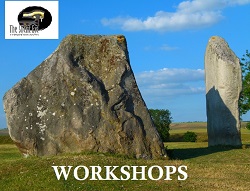



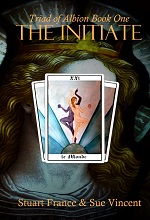


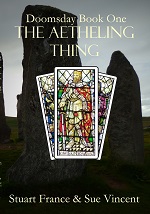
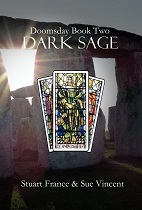
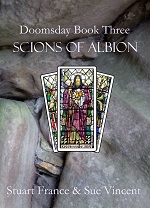







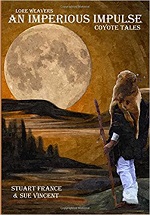


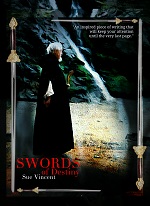

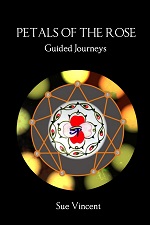






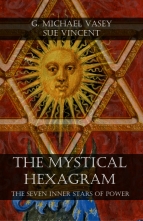

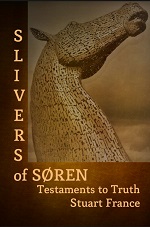


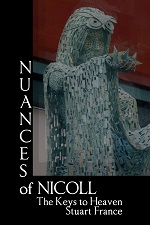


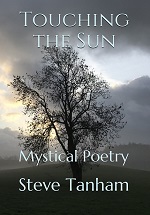

I always love Robbie’s old folklore tales!
LikeLiked by 2 people
It is good to learn about cultures and beliefs other than our own. 🙂
LikeLiked by 1 person
Definitely 😍
LikeLiked by 2 people
Thank you, Ritu. African beliefs and mythology are interesting and it is nice to share a bit about them.
LikeLiked by 2 people
Definitely!
LikeLiked by 2 people
Thank you for hosting me with this post today, Sue. I do enjoy giving people some insights into the wonderful world of African mythology and beliefs.
LikeLiked by 1 person
Thank you for coming over, Robbie. Respectfully fostering a better understanding of other cultures and beliefes can only be a good thing.
LikeLiked by 2 people
Fascinating post, Robbie. I used to see devotees go into a trance at Sufi shrines in Pakistan. The drumming and chanting is truly hypnotic.
LikeLiked by 2 people
Yes, I think people have gone into trance like states from very early in our history. Jean Auel mentions this several times in her Earth Child series of books. Glad you enjoyed it, Mary.
LikeLiked by 2 people
Enjoyed this post, Robbie. Their beliefs have stood them in good stead for many generations, maybe we should take heed 🙂
LikeLiked by 2 people
I agree, Jacquie. It is very interesting to see the similarities in the beliefs and myths of different peoples, as well as the differences.
LikeLiked by 2 people
This was so fascinating. I really enjoyed it! Thank you for sharing this history, Robbie 😊 And thank you, Sue for sharing Robbie! 💕
LikeLiked by 1 person
I am pleased you enjoyed this post, Dorinda. I find the beliefs and myths of the southern African people very interesting.
LikeLiked by 2 people
I did. I love the information you give on different histories. Like I said, it’s fascinating. Thank you, again!
LikeLiked by 2 people
Always a pleasure to have Robbie over )
LikeLiked by 2 people
Reblogged this on Roberta Writes and commented:
I am over at Sue Vincent’s lovely blog with a post about the historical beliefs and ancient myths of the bushmen or Saan people of the Kalahari desert. Thank you, Sue!
LikeLiked by 1 person
Thanks for the educational content – I love posts like this one! 🙂
LikeLiked by 2 people
Thank you, Jay. I am pleased you enjoyed it.
LikeLiked by 2 people
Reblogged this on DSM Publications and commented:
Meet Guest author: Roberta Eaton, in this post from Sue Vincent’s blog.
LikeLiked by 1 person
Thank you for sharing, Don.
LikeLiked by 2 people
You’re welcome.
LikeLiked by 2 people
Reblogged this on Loleta Abi.
LikeLiked by 1 person
Thanks, Traci 🙂
LikeLiked by 1 person
You’re welcome, Sue!
LikeLiked by 1 person
Thank you, Traci.
LikeLiked by 2 people
You’re welcome, Robbie!
LikeLiked by 1 person
Pingback: Guest author: Roberta Eaton ~ Beliefs and myths of southern Africa II – The Khoikhoi (Hottentots) | Smorgasbord Blog Magazine
Thank you, Sally xx
LikeLike
Pingback: Guest author: Roberta Eaton ~ Beliefs and myths of southern Africa V: The Venda | Smorgasbord Blog Magazine
Pingback: Guest author: Roberta Eaton ~ Beliefs and myths of southern Africa – The bushmen
Interesting reading, Robbie. I read a lot about primitive (using that term denotatively) tribes to inform me on my people. There is a lot to be said about how well their lifestyle and culture worked for their beliefs.
LikeLiked by 2 people
Hi Jacqui, you are right. The San people had adapted their lifestyles perfectly to their desert surroundings. Unfortunately, many of them haven’t thrived in the modern world and there is a lot of alcoholism among them now. Those who have managed to retain their traditional lifestyles are much better off.
LikeLiked by 1 person
Said it before and I’ll say it again.., you always share the best stuff!
LikeLiked by 2 people
I do my best 🙂
LikeLiked by 2 people
Hi Annette, thank you, I’m glad you enjoyed this post. Sue is always a wonderful host.
LikeLiked by 2 people
I missed this series when it first came out. So glad to catch it this time. Very interesting learning about the bushmen. Thanks, Robbie and Sue!
LikeLiked by 2 people
Hi Barbara, I am delighted you enjoyed this post. I enjoy sharing about southern Africa and its mysteries.
LikeLiked by 2 people
I don’t know a lot about southern Africa. It’s so different from where I live and great to read about.
LikeLiked by 2 people
My mother and father would have marvelled at how today we can learn so much about other races from people living all over this world of ours. The strange thing is though no matter how much easier knowledge becomes accessible, common sense remains an incomprehensible concept for so many.
LikeLiked by 2 people
That, unfortunately, is all too true, Danny.
LikeLiked by 2 people
Hi Danny, I must admit that I marvel at the internet and how wonderful it is. I remember having to go to the library to look things up and you only had access to those books that were available in your local library. The internet, in the right hands, is an amazing tool. Your comment about common sense is sadly true, but that is how humans have always been.
LikeLiked by 1 person
It’s fascinating to me how much similarity there is in the beliefs of different cultures. I love the animation of natural elements into mythologies and the sacredness of the Earth. So glad Robbie reshared this post. 🙂
LikeLiked by 3 people
Hi Diana, I have had this exact discussion with many people who are of the incorrect view they are very different in their beliefs and cultures.
LikeLiked by 2 people
Shared human-ness is a huge factor. 🙂 We are much more alike than unalike.
LikeLiked by 2 people
fascinating to see and read about a culture so different than mine. I loved the story of the bird man and having child-like fits. And that is scary to think that dancing could cause a near death experience…
LikeLiked by 2 people
The stories and traditional beliefs of southern African people are fascinating, Jim.
LikeLiked by 2 people
I agree; thanks for sharing them.
LikeLiked by 2 people
The bushmen of Africa are a people and a culture I know nothing about. I am glad I had the opporutnity to read Robbie’s post to begin rectifying that.
LikeLiked by 2 people
HI Liz, I have always been interested in all the various people who live in my country. As a little girl when we lived on a farm, I would go and visit the workers in their village and listen to their stories. I even gave away one of my dolls to my friend, the daughter of a farm worker, and my mother was hopping mad because it had been sent to me from my grandmother in England.
LikeLiked by 2 people
I’m glad to have the opportunity to learn more about the people of South Africa from your posts, Robbie. Have you written story about going to visit the workers in their village? I think it would make a good short story.
LikeLiked by 2 people
I haven’t done it yet, Liz. I have only written a few stories in my writing life so far. Time is such an issue for me and I keep getting sucked into short stories that grow into novella’s and then novels.
LikeLiked by 2 people
Maybe some day! We have to heed the call of whatever story is begging to be written, and it is going to take the form it needs to take.
LikeLiked by 1 person